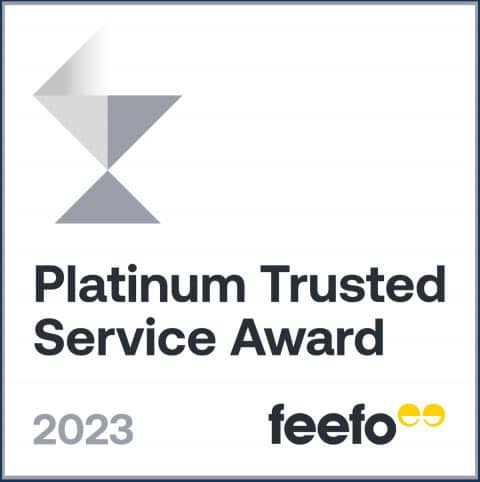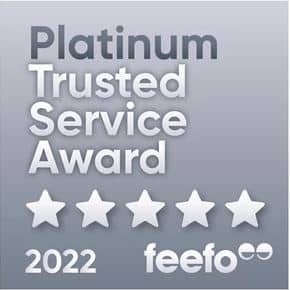Hire Purchase
Author
Savvy Editorial TeamFact checked
Hire Purchase
What is a hire purchase?
A hire purchase is a flexible and cash flow neutral finance solution for business looking to eventually own cars, equipment, or long-term assets. Repayments can be tailored to your business cycle. You can reduce repayments using a balloon payment (residual value) payment, due at the end of the loan term. A hire purchase doesn’t require a deposit, and all repayments are on the books as operating expenses. As a business loan, you can also finance maintenance and servicing as part of the hire purchase agreement, with an amount more than 100% of your asset’s value.
Accounting and tax benefits
With all hire purchases, ownership of the equipment or car rests with the lender until the end of the loan term. This means you are effectively hiring or renting the asset which means repayments are classified as a business operating expense. Your lender may claim GST, depreciation, and interest paid on the loan and pass it on as savings to you. This may suit businesses that require off-balance sheet accounting. Our experienced consultants have access to the best finance products and rates. Savvy will make it simple and easy for you to make an informed decision.

Getting you approved with your Hire Purchase
Competitive rates
Vehicle ownership
Fully maintained options
Tax effective
No Deposit
Help from start to finish
Tips for saving more on hire purchases?
Figure out what your business needs
Though not as common as their fixed counterparts, you can get a variable rate car loan. These are harder to budget for due to their rates being pegged by the official cash rate set by the RBA. You could experience reduced repayments if the market goes down; but increased payments if the rates go up.
Is your accounting method suitable?
Making additional repayments on your loan can reduce your loan term and overall interest paid. The easiest way is to increase your repayment frequency from monthly to fortnightly payments, as you make 26 payments throughout the year, equivalent to an “extra” monthly payment. Some loans may allow you to make extra lump sum repayments, “top ups”, or increase your regular repayment amount without penalty. This helps reduce the amount of interest and your loan term.
Set your repayments
The best practice is to have at least 20% in deposit or trade-in value when buying a car. However, you can borrow 100% of the vehicles value in some instances, conditions may apply.
Apply with a broker
If you have a lower than average credit score (600 or below, from a top score of 1200) you may find it difficult to obtain car finance. Options are available for people with bad or impaired credit to gain car loan approval. In most cases, these loans will have higher than average interest rates, due to increased risk on a lender’s part. Even so, it can be a pathway to car ownership.
Determine the tax benefits
For the entrepreneur or the self-employed, car finance can be a tricky path to navigate. Some sole traders cannot qualify for business car loans due to the 50% use case threshold. In that instance, they can opt for a low documentation or “low doc” loan, which uses fewer points of data to assess creditworthiness. This helps you get a car loan but may have higher interest rates as a result.
What our customers say about their finance experience


Savvy is rated 4.9 for customer satisfaction by 3819 customers.

Got a question about your car loan?
Business gains many tax breaks and other incentives. GST paid on the asset as well as interest and depreciation is claimable; either are passed on by the lender or claimed by your business. You are also eligible for the instant tax write-off.
A chattel mortgage and hire purchase work the same in principle but are different “on paper.” In a chattel mortgage, your business places the asset on the books straight away. In a hire purchase, the bank or lender is the owner for the duration of the loan. This makes a different for accounting for assets vs. using operating capital. Your accountant may decide one option is better for your business over the other.
A balloon payment, or residual value payment, is a part of the loan set aside for payment at the end of the loan term. This has the effect of reducing regular repayments. When the loan term is up, you can pay out the balloon, refinance the balloon, or in some cases, trade in your equipment or car if it meets certain conditions.
This means your business will not have to dip into savings or cash reserves to immediately fund the hire purchase. You can borrow 100% of the asset’s value, and even cover expenses such as registration, insurance, training, installation, and maintenance.
Loan terms typically range from 12 months up to 7 years for hire purchases.
Yes, we can arrange seasonal repayment plans according to your requirements.
A finance lease is an agreement to take possession (not ownership) of equipment or assets for a limited time. You pay to use the assets during the lease term. At the end, you can upgrade, hand the assets back, or start a new lease. Under a finance lease there is no option to claim GST.
Your comprehensive guide to hire purchases
Is a hire purchase eligible for the instant asset write-off?
According to the Australian Taxation Office, a hire purchase is eligible for the instant asset write-off, check the ATO website to see what the current limit is. Though a hire purchase arrangement does not add an asset on to your books immediately, the method of acquiring the asset (chattel mortgage, buying outright, or hire purchase) and whether it is used for business purpose will determine whether the purchase qualifies for the tax write-off
What type of assets are considered for hire purchases?
Almost any type of performing or non-performing asset is eligible for a hire purchase. “Performance” refers to whether the asset directly or indirectly contributes to the business’ gross profit. A coffee shop may need an espresso machine and chairs. The espresso machine is a performing asset as it makes the coffee for sale. A chair is a non-performing asset, as it’s there for customer comfort and does not generate revenue. As long as the asset is used primarily for business use, it is eligible for hire purchase finance.
Can my business purchase the asset during the hire period?
Yes – if your business wishes to purchase the assets outright from the bank or lender, you do have an option to pay out the loan. This may suit a business that wants to transfer their equipment or car onto their books as assets. In some hire purchases, you may have options to buy the asset outright at various times during the loan term. This can save money in interest repayments, although fees and charges could apply. Always talk to your accountant before making any decision.
What type of assets are considered for hire purchases?
Any business with an active ABN that intends to use the equipment or vehicle for more than 50% business use may apply for a hire purchase. This includes partnerships, sole traders, and other incorporated entities. If a sole trader wishes to buy a car using a hire purchase, they must demonstrate the car will be used for business purposes more than half the time. If it will be used for personal use most of the time, the best way to finance a vehicle would be to apply for a commercial car loan.

